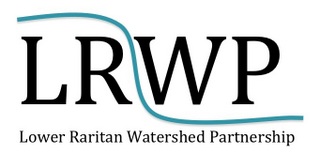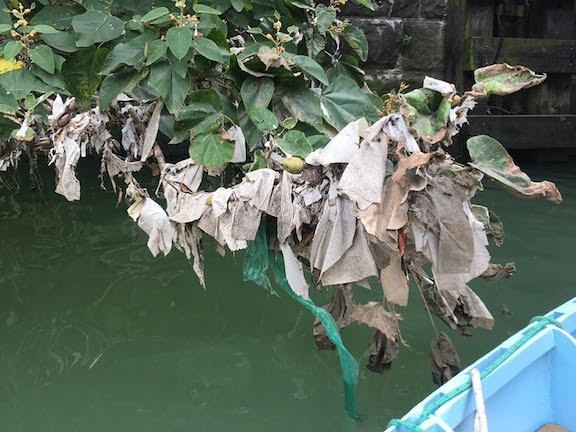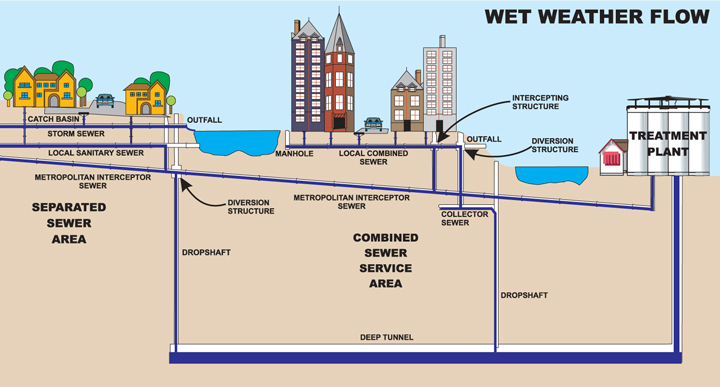MCUA Wastewater Treatment Plant Tour Recap
On Friday October 17 the LRWP toured the Middlesex County Utilities Authority (MCUA) wastewater processing and treatment plant. While there we learned about the processes of removing and eliminating contaminants from wastewater, and gained understanding of how wastes are converted into an effluent that can be returned to the water cycle through primary outfalls in Raritan Bay and the Raritan River.
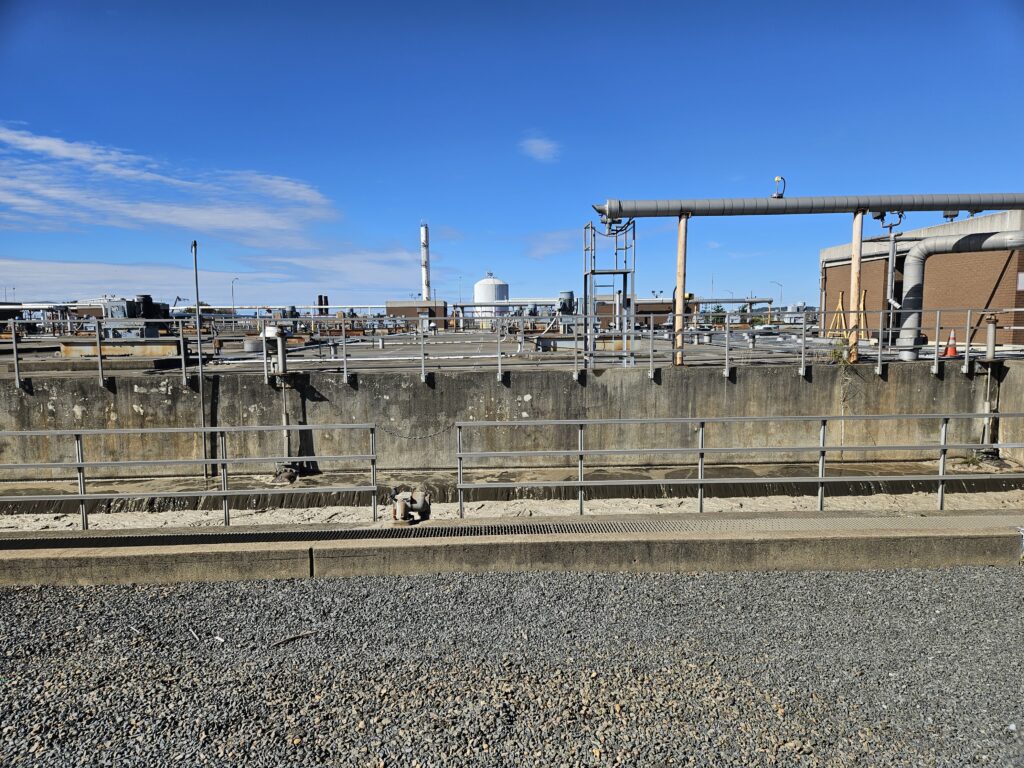
With many thanks to Lisa Oberreiter, General Superintendent at Middlesex County Utilities Authority and her staff for a fascinating explanation of how things work “behind the scenes”. You can hear Lisa’s voice in this youtube video as she explains the important process of aeration in sewage treatment.
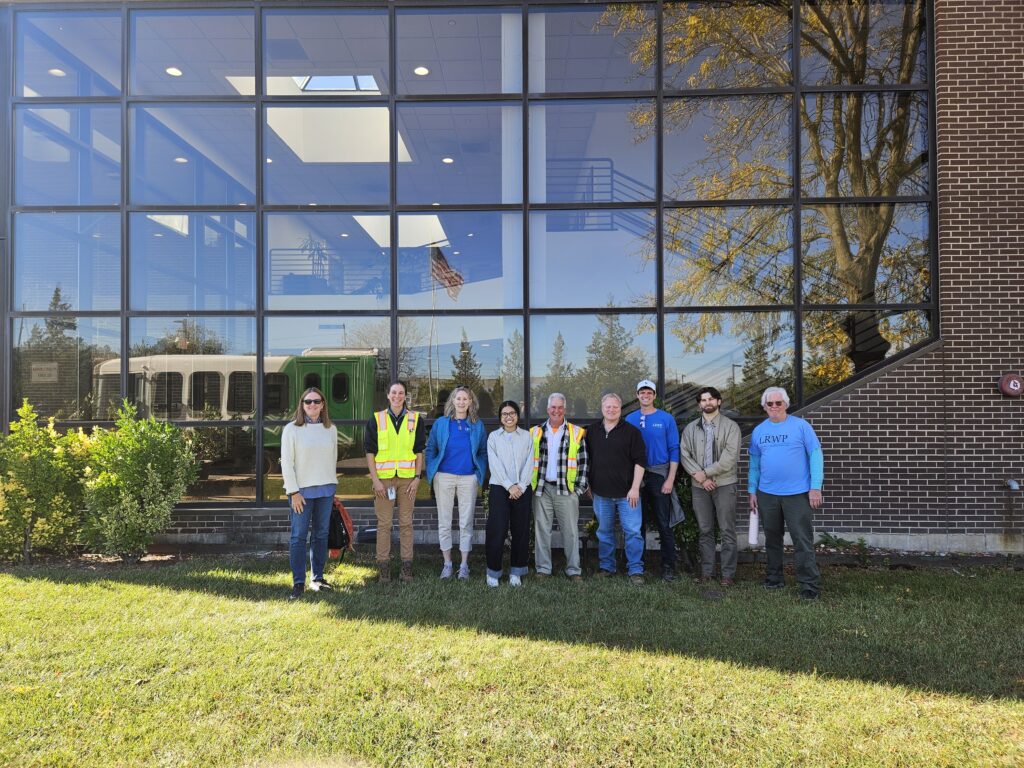
MCUA’s Lisa Oberreiter is second from left. Pathogens monitoring team members Johnny Meyer, Frank Dahl and Heather Fenyk also joined the tour.
During the LRWP’s pathogens monitoring work we often observe “flushable” sanitary wipes floating in the River and caught in vegetation along the riverbank. So-called “flushable” wipes are non-flushable! They are typically made from synthetic materials and do not easily break down in sewer systems.
There is no such thing as a “flushable” wipe!
These materials escape the process of wastewater treatment, most typically at the point at which sanitary sewage infrastructure and stormwater infrastructure meet, in an outdated system called a “combined sewer”. As these materials escape the processing system, they contribute to the presence of disease-causing pathogens in our waterways and cause beach closures. As they are caught up in the processing activity, they lead to huge costs to wastewater systems like the treatment plant in Sayreville, causing clogs and damage to wastewater pipes, pumps, and treatment equipment.
Wastewater collection systems must periodically cleared of the clogs of sanitary wipes and other materials that become trapped in underground intercepting structures to limit the flows of this waste through the CSO outfalls. While conducting pathogens monitoring on June 5, 2025 at our water monitoring station near Perth Amboy’s Wilentz Elementary School, the LRWP team observed a pile of the waste cleared from an intercepting structure near the City of Perth Amboy-managed CSO. Approximately four tons of wipes and feces were removed from the interception point and deposited on land to await transport to a landfill.
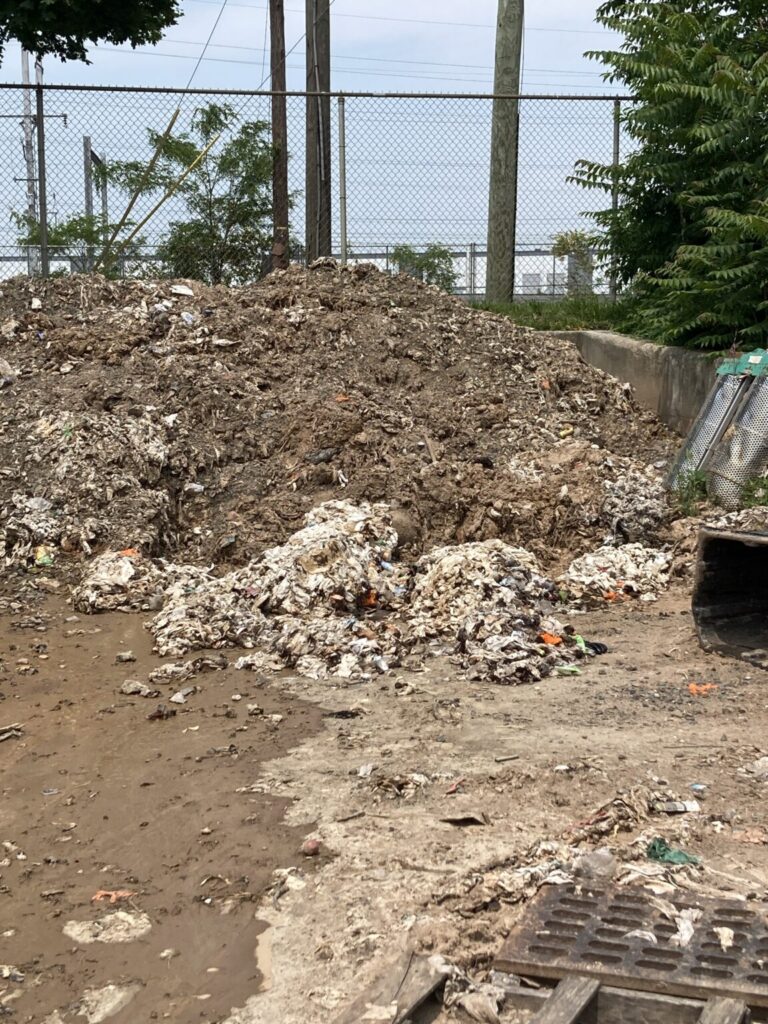
This practice of removing wipes from interception points and dumping them on land to minimize flush into waterways and damage to sanitary sewage infrastructure is not unique to managers of such properties, or even to managers of CSOs in New Jersey. This is a permitted practice under the Clean Water Act that is managed by the state Department of Environmental Protection. Each CSO has a separate permit, and each municipality must adopt a Long Term Control Plan (LTCP) for CSO management.
Taking Action
Could present day practices be improved for our local CSOs? Absolutely. All utilities should be working to identify and elevate best practices with respect to CSO management.
In addition, in March 2025 Republican Conference Chairwoman Lisa McClain of Michigan introduced H.R. 2269, the Wastewater Infrastructure Pollution Prevention and Environmental Safety (WIPPES) Act. On June 23, 2025 it passed the Senate and moved to the House where its companion S. 1092 (Merkley) was favorably reported out of the Committee on Commerce, Science, and Transportation in late May. The WIPPES Act would establish a national “DO NOT FLUSH” labeling standard for non-flushable wet wipes. If WIPPES is signed into law, wet wipe manufacturers would be required to place symbols and standard language labeling on products that recommends consumers not flush the wipes after use. It would further restrict any verbiage on packaging that would imply that the product is actually flushable. Regulation of the policy would have the teeth of the Federal Trade Commission, with violations punishable as an unfair or deceptive practice.
